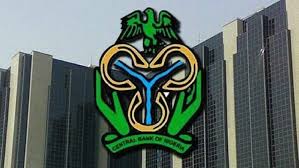BUSINESS

NIGERIA RECORDS FIFTH INFLATION DROP, EXPERTS URGE CBN TO CUT INTEREST RATES
Nigeria’s inflation rate has dropped for the fifth month in a row, sparking renewed calls for the Central Bank of Nigeria (CBN) to lower interest rates.
According to the National Bureau of Statistics (NBS), headline inflation fell to 20.12% in August 2025, down from 21.88% in July. This represents a year-on-year decline of over 12% compared to the 32.15% recorded in August 2024. The slowdown is largely linked to easing food prices, particularly rice, millet, flour, maize, and semolina.
Food inflation also eased slightly, dropping to 21.87% in August from 21.88% in July.
The positive trend has intensified calls for the CBN to cut interest rates from the current 27.50%, a level manufacturers and stakeholders say is stifling growth in the real sector.
Financial expert Gbolade Idakolo, CEO of SD & D Capital Management, told Daily Post that the consistent inflation decline allows the CBN to consider a rate cut during its Monetary Policy Committee (MPC) meeting scheduled for September 22–23, 2025.
“High interest rates make it impossible for Nigerians to feel the impact of falling inflation. A reduction would ease pressure on the real sector, bring down costs, and improve the cost of living,” he explained.
Similarly, Prof. Godwin Oyedokun of Lead City University noted that while the data looks positive, many Nigerians may not immediately feel the benefits unless the drop translates into lower prices for essential goods.
“For most citizens, real relief depends on whether food prices and other living costs actually fall. Until then, the inflation decline may feel like numbers on paper rather than real impact,” he said.
Despite the encouraging signs, experts warn that sustained monitoring of food prices, wages, and business costs will be key in determining whether the downward inflation trend truly improves living standards.
For now, Nigerians are watching closely to see if the CBN will take action to ease monetary policy and support the economy.
"This represents a significant development in our ongoing coverage of current events."— Editorial Board









